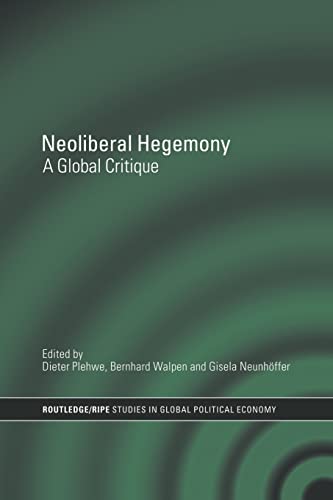

Most ebook files are in PDF format, so you can easily read them using various software such as Foxit Reader or directly on the Google Chrome browser.
Some ebook files are released by publishers in other formats such as .awz, .mobi, .epub, .fb2, etc. You may need to install specific software to read these formats on mobile/PC, such as Calibre.
Please read the tutorial at this link. https://ebooknice.com/page/post?id=faq
We offer FREE conversion to the popular formats you request; however, this may take some time. Therefore, right after payment, please email us, and we will try to provide the service as quickly as possible.
For some exceptional file formats or broken links (if any), please refrain from opening any disputes. Instead, email us first, and we will try to assist within a maximum of 6 hours.
EbookNice Team

Status:
Available4.3
12 reviews
ISBN-10 : 0415460034
ISBN-13 : 9780415460033
Author: Dieter Plehwe
Neoliberalism is fast becoming the dominant ideology of our age, yet politicians, businessmen and academics rarely identify themselves with it and even political forces critical of it continue to carry out neoliberal policies around the globe. How can we make sense of this paradox? Who actually are the neoliberals?
This is the first explanation of neoliberal hegemony, which systematically considers and analyzes the networks and organizations of around 1.000 self conscious neoliberal intellectuals organized in the Mont Pèlerin Society.
1. Global Neoliberal Projects Between Network and Complex Organization: The Making of Neoliberal Knowledge and Hegemony Dieter Plehwe and Bernhard Walpen Neoliberalism, Capitalist Class Formation and the Global Network of Corporations and Policy Groups William K. Carroll and Colin Carson Peddling Reform: The Role of Think Tanks in Shaping the Neoliberal Policy Agenda for the World Bank and International Monetary Fund Christian E. Weller and Laura Singleton
2. Neoliberal Hegemonic Constellations in the (Semi-)Periphery: Transnational and domestic roots Why Is There No Third Way? The Role of Neoliberal Ideology, Networks and Think Tanks in Combating Market Socialism and Shaping Transformation in Poland Dorothee Bohle and Gisela Neunhöffer The Neo-Liberal Ascendancy and East Asia: Geo-Politics, Development Theory and the End of the Authoritarian Developmental State in South Korea Mark T. Berger The Mexican Economy since NAFTA: Socioeconomic Integration or Disintegration? Enrique Dussel Peters
3. Neoliberal Discourse Relations: Dissemination, diffusion, and adaptation The Great Lie: Markets, Freedom and Knowledge Richard Hull Frontiers and Dystopias: Libertarian Ideology in Science Fiction Peter Josef Mühlbauer The Education of Neoliberalism Oliver Schöller and Olaf Groh-Samberg Gender Mainstreaming: Integrating Women into a Neoliberal Europe? Susanne Schunter-Kleemann and Dieter Plehwe
4. Major Hegemonic Battle Lines Neo-Liberalism and Communitarianism: Social Conditions, Discourses and Politics Hans-Jürgen Bieling Neo-Liberalism and Cultural Nationalism: A Danse Macabre Radhika Desai The World Wide Web of Anti-Neoliberalism Emerging Forms of Post-Fordist Protest and the Impossibility of Global Keynesianism Ulrich Brand Notes References Index
neoliberal hegemony meaning
neoliberal ethos meaning
neoliberal globalization examples
neoliberal globalist
global neoliberal hegemony
Tags: Neoliberal Hegemony, A Global Critique, Dieter Plehwe, dominant ideology